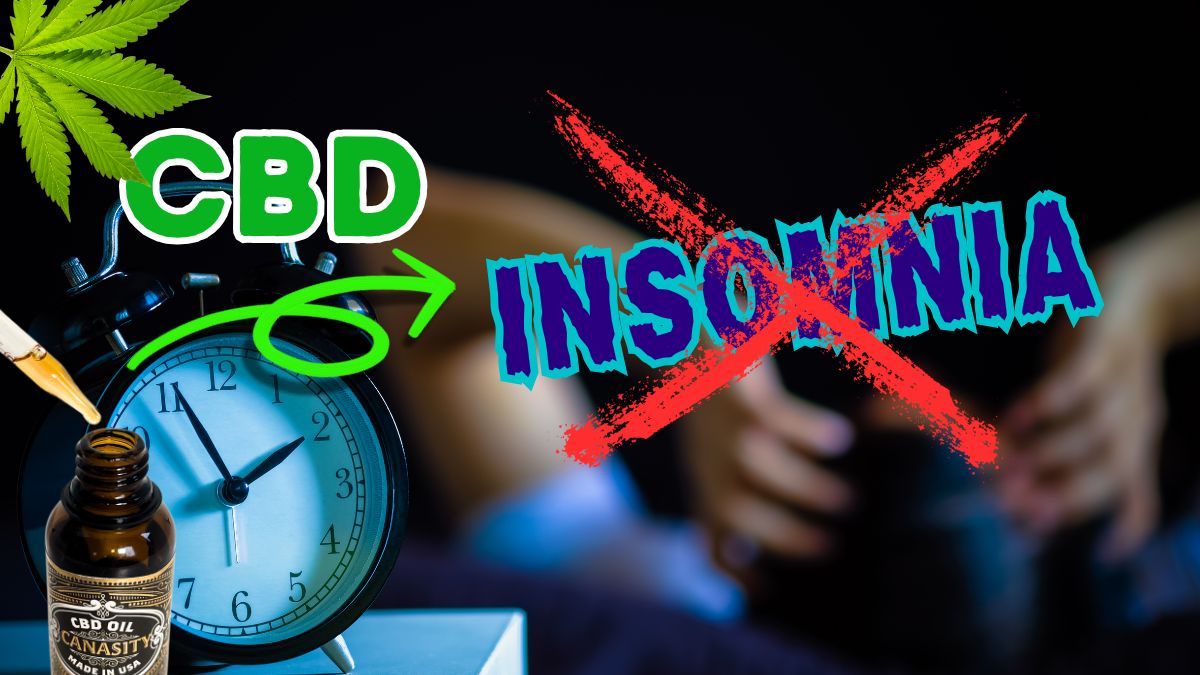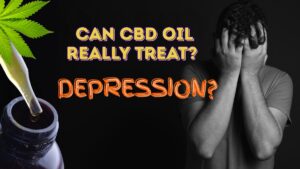Tossing and turning, anxiously watching the clock tick by, and the mental and physical fatigue that comes from a night of elusive sleep… If this scenario sounds familiar, you’re not alone. Insomnia has become one of the most common problems of modern life, diminishing the quality of life for millions. Wary of the side effects of traditional sleep medications, many are turning to natural alternatives, popularized by slogans like “Get Rid of Insomnia with CBD!” But what’s really behind these claims?
In this comprehensive guide, we’ll examine the relationship between CBD and sleep with scientific evidence, in a clear and reliable way. We will explore the mechanisms behind the question, “does CBD help with sleep,” and you will learn how you can use this natural support to achieve a restful night’s sleep.
What Is Insomnia and How Does It Affect Our Lives?
Insomnia is a common sleep disorder that involves more than just difficulty falling asleep. It also includes frequently waking up during the night, waking up too early and not being able to get back to sleep, or feeling tired even after sleeping.
- Acute Insomnia: Often caused by a stressful event, travel, or a temporary illness, and lasts for a few days or weeks.
- Chronic Insomnia: Describes sleep problems that occur at least three nights a week for three months or longer and is often linked to an underlying cause.
Lack of sleep doesn’t just make you feel tired the next day. In the long term, it can lead to serious consequences such as difficulty concentrating, memory problems, mood swings, a weakened immune system, and an increased risk of chronic diseases. For this reason, sleep quality is of critical importance to our overall health.
What Is CBD (Cannabidiol) and Its Relationship with the Body’s Balance System?
What is CBD? Cannabidiol is a natural, non-psychoactive compound found in the industrial hemp plant. It works by interacting with our body’s Endocannabinoid System (ECS). This system is tasked with regulating many vital functions, including the sleep-wake cycle. Insomnia can often stem from an imbalance in this system. It is thought that CBD may help the body rediscover its natural rhythm and balance by modulating the ECS.
The Mechanisms of CBD’s Effect on Sleep: What Does the Science Say?
CBD doesn’t work by “knocking you out” like traditional sleep medications. Instead, it can promote a more natural and restful sleep process by targeting the underlying causes of sleeplessness.
Reducing Anxiety and Stress
One of the biggest triggers for insomnia is the mind that won’t quiet down at night. Anxious thoughts like “How will tomorrow’s meeting go?” or “Did I pay the bills?” cause the body to enter “fight or flight” mode, making it impossible to fall asleep. One of CBD’s most well-known properties is its ability to reduce anxiety and stress. By affecting serotonin receptors in the brain, it can help promote calmness and reduce mental noise, creating the peaceful state necessary for transitioning to sleep.
Alleviating Pain
Chronic pain is another major factor that disrupts sleep quality. Conditions like arthritis, fibromyalgia, or back pain make it difficult to find a comfortable position at night and lead to frequent awakenings. CBD’s potent anti-inflammatory and analgesic (pain-relieving) properties can alleviate pain, allowing the body to relax and achieve uninterrupted sleep.
Regulating Cortisol Levels
Cortisol is known as the “stress hormone.” Normally, its levels are high in the morning to prepare us for the day and fall at night to facilitate sleep. However, many people with insomnia have abnormally high cortisol levels at night. Scientific studies have shown that CBD may help regulate cortisol secretion, specifically by lowering nighttime levels, which can make it easier to fall asleep.
Its Effect on the Sleep-Wake Cycle
Research suggests that CBD may also play a regulatory role in the sleep cycle itself. Some studies have found that CBD may increase total sleep time and alleviate symptoms in conditions like REM sleep behavior disorder (a condition where people physically act out their dreams). This indicates that CBD may not only help with falling asleep but also support the CBD for deep sleep stages.
How to Use CBD Oil for Insomnia: Best Timing and Methods
The answer to how to use CBD oil for insomnia lies in proper timing and method.
- Timing: For best results, it is recommended to take CBD oil about 30 to 60 minutes before your planned bedtime. This allows enough time for the compound to be absorbed by your body and begin to take effect.
- Method: Sublingual (under the tongue) use offers the fastest effects. Holding the oil under your tongue for 60-90 seconds before swallowing allows the CBD to enter the bloodstream directly. Capsules take longer to work (1-2 hours) but their effects may last longer.
How to Find the Right CBD Oil Dosage for Sleep
There is no standard guide for an effective CBD oil dosage for sleep; the dose is highly personal. The “start low, go slow” principle is the safest way to go.
A starting dose in the range of 20-40 mg is often recommended for sleep. Begin with this dose and observe the changes in your sleep quality over a week. If you don’t see the desired effect, you can gradually increase the dose by 5-10 mg each week until you find the level that works best for you.
Potential Side Effects and What to Consider
While CBD is generally considered safe, it can cause mild side effects in some people. These include dry mouth, diarrhea, or changes in appetite. When used for sleep, if the dose is too high, a slight feeling of grogginess the next morning is possible. Reducing the dose usually solves this issue. If you take regular medication, you must consult your doctor before using CBD to avoid potential interactions.
CBD and Other Sleep Habits: A Holistic Approach
CBD is not a magic wand. The best results are achieved when you combine it with healthy sleep hygiene habits. While using CBD as a natural sleep aid, also try the following:
- Go to bed and wake up at the same time every day.
- Avoid blue-light-emitting screens like phones and tablets for at least an hour before bed.
- Ensure your bedroom is cool, dark, and quiet.
- Avoid caffeine and heavy meals in the evening.
A Guide to Choosing High-Quality CBD Products
The quality of the product you buy will directly affect the results you see.
- Third-Party Lab Testing: Check the product’s Certificate of Analysis (CoA).
- Organic Hemp: Ensure the product is derived from organic hemp plants, free from chemicals.
- THC Content: Choose broad-spectrum products with 0% THC to benefit from other hemp compounds (like terpenes) without any psychoactive effects.
Brands that prioritize transparency and quality, like Canasity, can offer reliable products that meet these standards.
Conclusion: CBD as a Natural Support for Sleepless Nights
Cannabidiol for sleep stands out as a promising natural support for improving quality. Unlike traditional sleep medications, it works by targeting the root causes of sleeplessness, such as stress, pain, and hormonal imbalances. This may not only help you fall asleep but also help you achieve a deeper, more restorative sleep cycle. When combined with healthy sleep habits, CBD oil can be a powerful ally on your journey to saying goodbye to sleepless nights.
For more information, visit our FAQ page: https://canasity.com/faq/
Frequently Asked Questions (FAQ)
- Does CBD oil make you sleepy? CBD doesn’t “make you sleepy” like a traditional sleeping pill. Instead, it helps the body enter its natural sleep process by alleviating factors that cause sleeplessness, like anxiety and pain.
- How long does it take for CBD oil to work for sleep? When taken sublingually, the effects generally begin to be felt within 30-60 minutes. It may take 1-2 hours for capsules to take effect.
- Can CBD be taken with melatonin? Many people use this combination. However, since both have sedative effects, it is safest to start with low doses and consult your doctor before combining them.
- Does CBD affect dreams? Some users report that CBD makes their dreams more vivid or increases dream recall. This may be due to CBD’s potential effects on the REM stage of the sleep cycle.
- Does CBD cause grogginess in the morning? When taken at the correct dose, CBD does not typically cause morning grogginess. If you experience this effect, your dose is likely too high for you and should be reduced.
- What kind of CBD oil is good for sleep? Broad-spectrum CBD oils that contain terpenes known to promote relaxation, such as linalool or myrcene, are often preferred for sleep.
- Do I need to use CBD every night? Regular use is recommended for the best results. Taking it at the same time every night can help your body’s endocannabinoid system find balance and establish a consistent sleep routine.
- Is CBD oil sold by prescription? No, CBD oil products derived from industrial hemp and containing 0% THC are non-prescription food supplements. Only the drug form approved for epilepsy is subject to prescription.
Scientific Evidence and Sources Cited in the Article:
- Babson, K. A., Sottile, J., & Morabito, D. (2017). Cannabis, Cannabinoids, and Sleep: a Review of the Literature. Current psychiatry reports, 19(4), 23.
- Blessing, E. M., et al. (2015). Cannabidiol as a Potential Treatment for Anxiety Disorders. Neurotherapeutics. (Supports the role of anxiety in sleep.)
- Vučković, S., et al. (2018). Cannabinoids and Pain: New Insights From Old Molecules. Frontiers in pharmacology. (Supports the role of pain in sleep.)
- Shannon, S., et al. (2019). Cannabidiol in Anxiety and Sleep: A Large Case Series. The Permanente journal.
- Kuhathasan, N., et al. (2019). The use of cannabinoids for sleep: A critical review on clinical trials. Experimental and Clinical Psychopharmacology, 27(4), 383–401.
- Iffland, K., & Grotenhermen, F. (2017). An Update on Safety and Side Effects of Cannabidiol. Cannabis and Cannabinoid Research.
- Murillo-Rodríguez, E., et al. (2014). Potential effects of cannabidiol as a wake-promoting agent. Current neuropharmacology, 12(3), 269–272. (Supports the sleep-wake cycle.)
Last Updated: July 22, 2025
Author: The Canasity Science Team (Reviewed by experts with 7 years of experience in cannabinoid research.)
Important Disclaimer: This article is not medical advice. If you have chronic insomnia or another underlying health condition, you must consult a doctor or sleep specialist before starting any treatment. The use of CBD oil, especially if you are taking other medications, must be done under medical supervision.
















